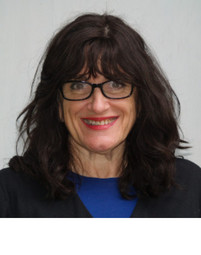The Vital Role of a Teacher Mentor in Educational Growth
Why Every Educator Needs a Teacher Mentor
As Rabbi Johnathon Sacks wisely said, “Lifting others, we ourselves are lifted.” This sentiment perfectly captures the essence of why having a teacher mentor is crucial in education. In our collaborative educational community, every teacher has the potential to achieve academic excellence through personal growth and learning.
The Power of Teacher Mentorship
A teacher mentor plays a pivotal role in an educator’s professional journey. Here’s why:
- Guidance: A teacher mentor provides direction in areas where growth is needed.
- Accountability: They offer a safe space for open discussion and self-improvement.
- Perspective: Mentors help identify blind spots we might miss on our own.
Being Both Mentor and Mentee
Throughout their career, each educator should experience both sides of the mentorship coin:
- As a mentee: Seeking guidance and learning from experienced colleagues.
- As a mentor: Sharing knowledge and supporting less experienced teachers.
Practical Ways to Engage with a Teacher Mentor
Mentoring relationships don’t have to be complex. They can be as simple as:
- Regular conversations during lunch breaks
- Scheduled walks to discuss teaching strategies
- Weekly check-ins to share lessons learned
Ethical Decision-Making with a Teacher Mentor
A school day is filled with ethical questions. A teacher mentor can help:
- Align decisions with moral values
- Navigate complex situations (e.g., choosing curriculum focus in geography or planning science fairs)
Creating Your Teacher Mentor Action Plan
Consider these questions:
- Do you have a teacher mentor? If not, who could you approach?
- How much time can you dedicate to meeting your mentor weekly?
- Are you mentoring someone? Who in your professional circle could benefit from your guidance?
The Impact of Teacher Mentorship on School Safety
When educators become accountable to each other through mentorship, it creates a ripple effect:
- Stronger professional relationships
- More ethical decision-making
- Safer school environments for students
Take the Next Step in Your Teaching Journey
Whether you’re seeking a teacher mentor or ready to become one, remember: mentorship is a two-way street of growth and learning.
Interested in learning more about mentoring? Explore our new Professional Learning Board online PD course:
Update November, 2024.
 About the Author
About the Author
Ellen Paxton is a respected expert in education and best known as the Chief Learning Officer of Professional Learning Board. As a two-time National Board Certified Teacher, Ellen has successfully published and customized online professional development courses and Learning Management Systems for 20 years to help teachers meet their state continuing education renewal credit requirements. Through ProfessionalLearningBoard.com, RenewaTeachingLicense.com, and ConnectedPD.com, Ellen has established solutions and maintained partnerships with several accredited universities, higher education institutions, teachers’ unions and state Departments of Education while setting strategic direction that makes a difference and overseeing implementation of popular online PD for schools.

Comments are closed.